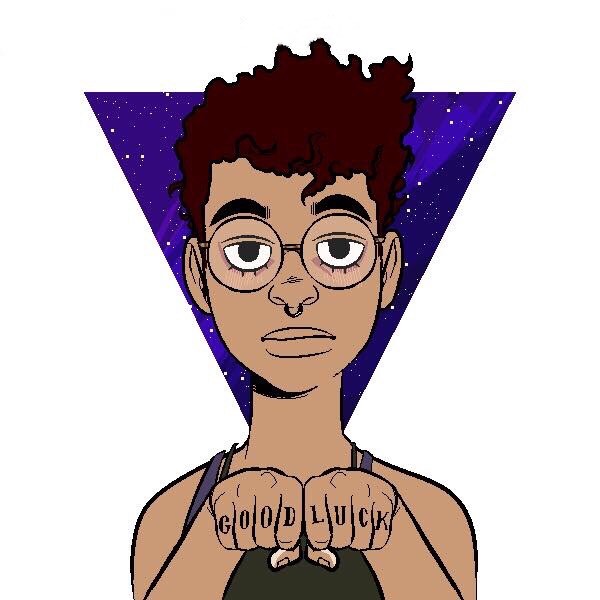- Current Students
- Discover CLASS
- Scholarships
- Back
- Scholarships
-
- Apply for Scholarships Online
- Dean's List Scholarship
- Dean's Graduate Scholarship
- The UNT Endowed Fund for College of Liberal Arts & Social Sciences Scholarship
- Charles T. & Mildred L. Newell Memorial Scholarship
- The Fenton Wayne Robnett Endowed Scholarship in Social Sciences Teaching Certification
- The Voertman-Ardoin Memorial Scholarship
- The Voertman-Ardoin Scholarships in Liberal Arts
- The A. M. Willis Endowed Scholarship
- The Eagles with Mettle Scholarship
- Other Types of Financial Support
- People
- Resources
- About Us
- CLASS Events
- Give
New to CLASS: Joanna Davis-McElligatt
July 16, 2019

Meet Dr. Joanna Davis-McElligatt, who will be joining the Department of English as an assistant professor in Fall 2019. We are featuring Dr. Davis-McElligatt as part of the #NewToCLASS campaign. Follow the hashtag on Instagram to meet our new faculty as we continue to post before the start of the semester.
Why did you decide to teach at UNT?
I was impressed by the university's long-standing commitment to the arts and humanities, and by the dynamism of UNT's radically diverse student body. Everywhere I go, I meet first-generation scholars, immigrants, people of color, gender nonconforming and queer students, students with disabilities, and nontraditional academics who have chosen to study here. As a queer black woman scholar of critical race and ethnic studies, who has often found herself from the outside of higher education looking in, it's of critical importance to me to be able to nurture the intellectual and emotional growth of marginalized students. It's a fantastic and exciting opportunity to be able to work at a majority-minority institution, and to continue developing my pedagogical praxis in tandem with the needs of UNT's scholarly community.
What are you most excited to teach your students?
My primary areas of expertise are Black Diasporic Literature, Critical Race and Ethnic Studies, and Southern Studies, which encompass an astonishingly broad intellectual and theoretical terrain. This fall I'm teaching a fantastic course on the literature, philosophy, and aesthetics of Afrofuturism, which will give us an opportunity to read some of the greats, including N.K. Jemisin, Fred Moten, Octavia Butler, and Nalo Hopkinson. In future semesters, however, I'm excited to teach courses on the literature of the black immigrant experience in the US. My current monograph-in-progress, Black and Immigrant: The New Black Diaspora in American Literature, explores the radical and ever-expanding body of literature produced by immigrants of African descent to the United States--think Chimamanda Ngozi Adichie, Taiye Selasi, Teju Cole, and Edwidge Danticat. Black immigrant fiction transforms our understanding of what it means to be black, what it means to be a citizen, and what it means to be a immigrant in new and important ways that are crucial to our understanding of life in the 21st century.
What are you bringing to UNT that is new and different?
For many years now, I've been working in the field of Comics Studies. And though it wasn't until I was in graduate school that I discovered I could actually write about comics, I've been an avid reader of graphic narratives, comic strips, and underground comix since childhood. I've published several pieces about comics art, and I'm currently co-editing a collection called BOOM! #*@&! Splat: Violence and Comics (University of Mississippi, under contract). But I don't just write about comics--I've published one of my own--and I also teach courses helping students learn how to make their own comics. Some of the students who have enrolled in my How to Make a Comic Book courses are convinced they can't draw or aren't creative enough to pull it off. But the beautiful and incredible thing about comics is that it's a simple language anyone can learn--even if all you can draw are stick figures. I'm excited to help students discover the power of graphic novels, memoirs, comic strips, and cartoons by reading and making them. (Read a recent comic here: https://littlevillagemag.com/comics-issue-2019-predictions-by-jo-davis-mcelligatt/)
What do you tell students or parents of students who are concerned about job prospects after graduation?
I empathize with anxieties about job prospects, and understand concerns about the relative value of a college degree in our current moment. That's why I would encourage students to think long and hard about what they love, what interests them, what drives them--and major in that. Things change very quickly, and we desperately need dynamic and nimble thinkers, interpreters, creators, artists, visionaries, and researchers in as many areas of human life as possible. Majors in the liberal arts and social sciences are equipped with tools necessary for navigating the world as it is, and for being part of transforming the world into what it will become. And for any anxious parents, I'd tell them that I went to the University of Kansas to be a medical doctor, and left as a Creative Writing major, but that ultimately following my interests and cultivating my talents was the best decision I ever made--and I'm still a doctor!